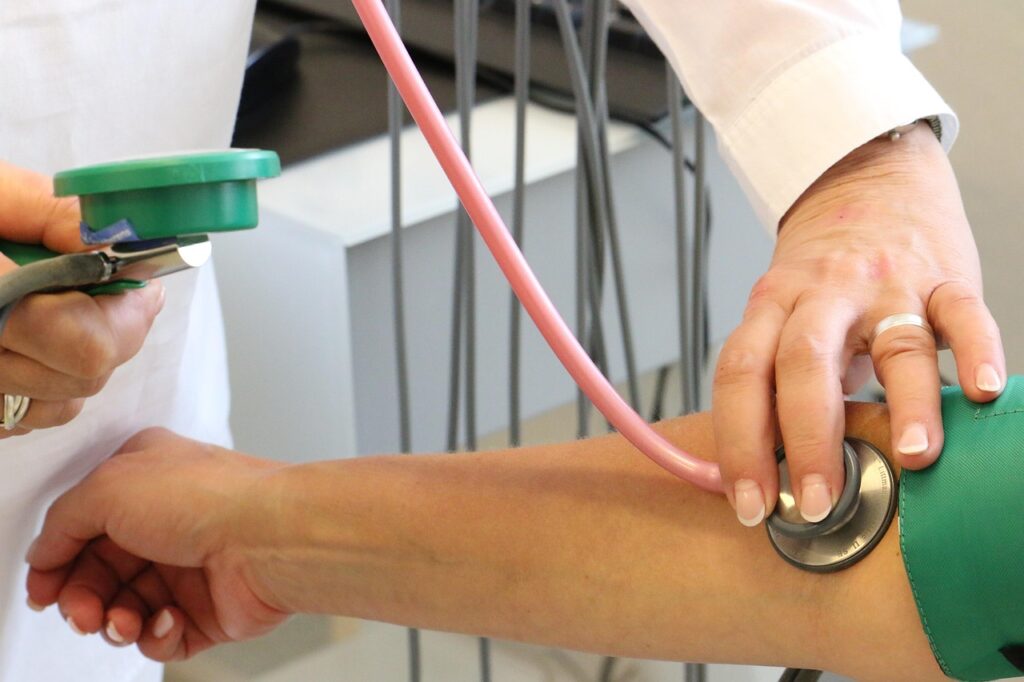Struggling with meth dependency? We’re here to help
Methamphetamine Addiction Recovery
Methamphetamine is a powerful and highly addictive stimulant that can damage the brain, heart, and mental health. At Quadrant Health, we provide a structured path to recovery that includes detox, therapy, and relapse prevention.
Get expert help for methamphetamine addiction with Quadrant Health’s full-spectrum programs.
The impact of meth use and how addiction begins
What is methamphetamine addiction?
Methamphetamine addiction is a severe stimulant use disorder characterized by compulsive use despite negative consequences. Meth floods the brain with dopamine, producing intense energy and euphoria. With continued use, it depletes dopamine reserves and impairs decision-making, memory, and impulse control. According to the CDC, methamphetamine-related overdose deaths have increased more than 6-fold from 2011 to 2021. The drug is often smoked, snorted, or injected and leads to high rates of psychosis, aggression, and cardiovascular damage. Treatment must address both the acute symptoms of withdrawal and long-term cognitive and behavioral challenges through structured rehabilitation and ongoing support.

Are there any warning signs of meth addiction?
The signs of methamphetamine addiction are often dramatic and distressing. Individuals may undergo physical and psychological transformations as their use escalates. Common signs of meth addiction include:
- Intense bursts of energy and erratic behavior
- Severe anxiety, paranoia, or hallucinations
- Noticeable weight loss and facial sores
- Obsession with repetitive or compulsive tasks
- Dental decay and poor hygiene ("meth mouth")
- Social withdrawal and aggressive tendencies
If these symptoms sound familiar, contact Quadrant Health to begin the recovery journey.
Who is most vulnerable? Exploring the underlying causes of dependency
Methamphetamine addiction often stems from a combination of risk factors. Individuals exposed to trauma, high-stress environments, or early experimentation with stimulants may be more susceptible. Mental health issues, especially ADHD, bipolar disorder, or depression, can also play a role in the development of stimulant dependence. Moreover, communities with high meth availability, lack of economic opportunity, or limited access to mental health services often see higher addiction rates.
Understanding these underlying factors allows for more targeted intervention and relapse prevention.
Hear from those who overcame meth addiction
Hear from our alumni who’ve overcome cocaine addiction and rebuilt their lives. Our network of accredited facilities provides hope, healing, and lifelong support.
the dangers of methamphetamine Addiction
Understanding the real consequences of addiction
Health & social risks
Methamphetamine addiction leads to rapid and destructive effects on both physical and mental health. Chronic use often results in severe weight loss, dental decay (“meth mouth”), insomnia, heart damage, and skin infections from obsessive picking. Long-term use can cause psychosis, paranoia, and hallucinations that persist even after the drug is stopped. Socially, meth users often face financial ruin, loss of employment, damaged relationships, and increased legal trouble due to risky or aggressive behavior driven by the drug.


Overdose, what do do
A methamphetamine overdose is typically caused by excessive stimulation of the central nervous system. When someone takes too much meth, or uses a high-purity batch, their heart, brain, and body temperature can go into overdrive. Symptoms often include chest pain, irregular heartbeat, extreme agitation, paranoia, hallucinations, high fever, tremors, and seizures. In severe cases, the individual may suffer a stroke, heart attack, or fall into a coma due to organ failure or overheating. Because meth overdose can escalate quickly and lead to death from cardiovascular collapse or brain damage, immediate action is critical.
If someone shows signs of meth overdose, call 911 right away. Move them to a cool, safe environment, keep them conscious if possible, and stay with them until help arrives.
METH DETOX SHOULD NEVER BE DONE ALONE
Methamphetamine withdrawal is primarily psychological, but its effects can be severe and dangerous. Depression, paranoia, and suicidal thoughts are common, especially after extended meth use. Unlike other substances, meth withdrawal doesn’t always present physically, which can mislead users into thinking it’s manageable alone. In reality, unmonitored meth detox is one of the highest-risk scenarios for relapse and mental health crisis.
Understanding the withdrawal symptoms
Meth withdrawal symptoms are rooted in dopamine depletion and brain imbalance after sustained stimulant use.
Some of these symptoms can become overwhelming quickly. This is why medical supervision during detox is essential.
- Mild symptoms: Begin within the first 24 hours and include fatigue, increased appetite, and low motivation.
- Moderate symptoms: Mood swings, anxiety, insomnia, irritability, and vivid nightmares typically develop within the first few days.
- Severe symptoms: In heavy users, psychosis, hallucinations, suicidal ideation, and intense depression can arise, especially during the acute crash period.
The phases of cocaine withdrawal:
Meth withdrawal is divided into three key stages that reflect brain chemistry rebalancing.
Crash phase
Appears within a few hours to 1–2 days, and is marked by sudden fatigue, sleep disturbances, and emotional flatness as dopamine levels crash.
acute withdrawal
Occurs typically on days 3–10 and includes emotional instability, cravings, agitation, and depression peak.
prolonged withdrawal
Sets weeks to months after, marked by anhedonia (inability to feel pleasure), lingering sadness, and memory issues. Relapse very likely to happen.
Safe Methamphetamine Detox at Quadrant Health
We offer a structured, supportive environment to help clients safely manage the emotional and psychological toll of methamphetamine withdrawal. Including:
24/7 monitoring by clinical staff
Round-the-clock supervision ensures your safety, manages complications early, and provides peace of mind during the stages of withdrawal.
hydratation, nutrition and sleep support
It often disrupts sleep and appetite. We help rebalance your body with proper hydration, healthy meals, and sleep-focused care to promote healing.
Mental health and emotional support
Our licensed professionals are here to help you manage anxiety, mood swings, and psychological stress, providing stability during the process.
Medication-assisted treatment (MAT)
Medications may be prescribed to ease the discomfort of meth withdrawal and prevent dangerous symptoms. This helps stabilize the nervous system.
Meth Treatment Built for Long-Term Healing
Every phase of your recovery, delivered by one expert team.
Methamphetamine recovery doesn’t happen in one step, it’s a process that requires structure, continuity, and trusted support. Quadrant Health offers a full range of care in-house, so you don’t have to bounce between providers. Whether you’re just beginning to detox or stepping down into long-term support, our integrated model helps you stay connected, supported, and focused on a sustainable future.
Detoxification
Residential Inpatient
Partial Hospitalization
Intensive Outpatient
Virtual Intensive Outpatient
Dual Diagnosis
Why Quadrant health?
At Quadrant, your recovery is our priority. We combine proven clinical expertise with compassionate care to guide you through every stage of meth addiction treatment. Our experienced team of licensed professionals creates personalized plans that integrate evidence-based therapies, holistic modalities, and dual diagnosis support when needed. With luxury, well-equipped facilities and a supportive, judgment-free environment, we offer more than just methamphetamine rehab. We offer a path to lasting transformation. Here, you’ll find the structure, flexibility, and care needed to rebuild your life, your way.
Explore:
Therapies we offer:
Frequently asked questions
What are the signs of meth addiction?
Common signs include extreme energy, paranoia, weight loss, tooth decay, hallucinations, and obsessive behavior patterns.
How long does meth withdrawal take?
Meth withdrawal begins within 12–24 hours and lasts about 1–2 weeks. Psychological symptoms like depression may last longer.
What is the most effective treatment for meth addiction?
Effective treatment includes medical detox, residential and outpatient services, cognitive-behavioral therapy (CBT), mental health support, and relapse prevention planning.
Can you detox from methamphetamine at home safely?
At-home detox is risky due to depression, suicidal thoughts, and cravings. Clinical detox provides safe, structured support.
What happens to the brain after meth use?
Long-term meth use damages dopamine systems, affecting mood, memory, and motivation. Recovery is possible with time and care.
Where can I find meth addiction treatment near me?
Quadrant Health offers comprehensive meth addiction treatment at seven locations nationwide, with support available for individuals who need to travel for care. No matter where you live, there’s quality care at your reach. Call us for more information.
How do you stop meth cravings?
Cravings can be managed with therapy, medications for anxiety or sleep, lifestyle changes, and consistent professional support.
What are the long-term effects of methamphetamine use?
Chronic meth use can lead to brain damage, heart problems, psychosis, and emotional instability—even after stopping the drug.
Can meth addiction be treated without rehab?
While some individuals benefit from outpatient care, rehab provides the structure and safety often needed in early recovery.
What is methamphetamine withdrawal like?
It typically involves fatigue, irritability, depression, sleep issues, and strong cravings, often requiring emotional and clinical support.
How much does meth rehab cost with insurance?
Most insurance plans cover part or all of the cost. Quadrant Health can help confirm your benefits and coverage options.
Can you fully recover from meth addiction?
Yes. Recovery is possible with the right combination of treatment, time, and a supportive environment.

